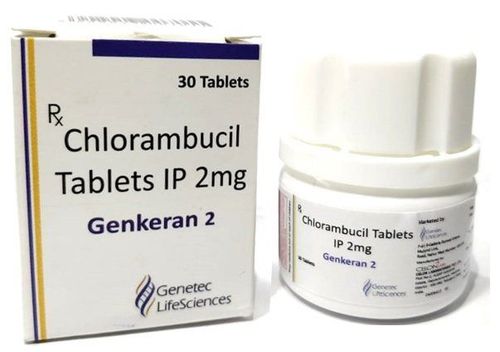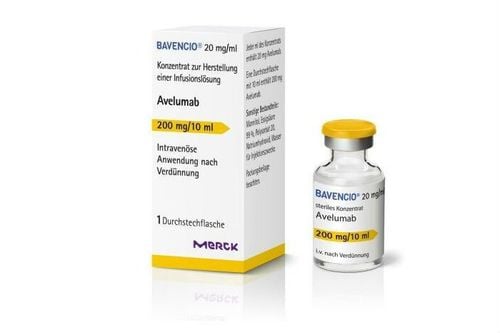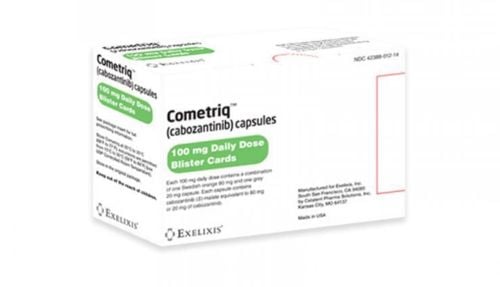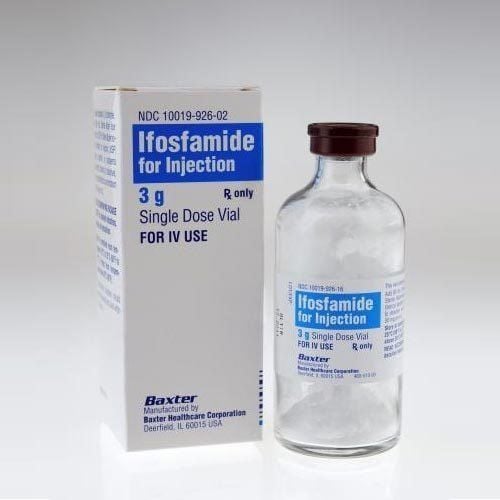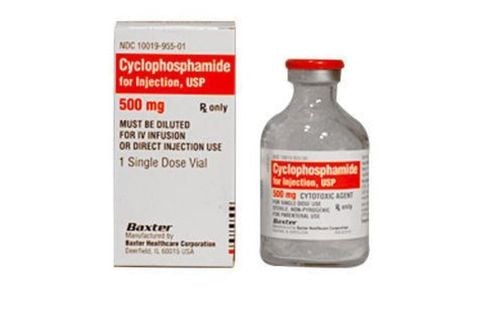This is an automatically translated article.
Imatinib is a cancer treatment drug in the form of a film-coated tablet containing imatinib 100mg and 400mg. Imatinib is used in the treatment of certain types of cancer such as chronic myeloid leukemia, acute lymphoblastic leukemia, ...
1. Uses of Imatinib
Imatinib belongs to the group of cancer drugs, tyrosine kinase inhibitors, whose main ingredient is Imatinib. Imatinib kills cancer cells.
Imatinib is available in the form of 100mg and 400mg film-coated tablets, or 80mg/ml oral solution. The drug is indicated for use in the treatment of certain types of cancer such as:
Chronic myeloid leukemia in both children and adults Step 2 therapy in patients with chronic myeloid leukemia Acute lymphocytic leukemia (difficult to treat) treatment or recurrence) Gastrointestinal malignancies Other: myelodysplastic, myeloproliferative, systemic invasive mast cell hyperplasia, chronic eosinophilia or eosinophilia, or tumor recurrent, metastatic, or inoperable fibrocytic cutaneous sarcomas.
2. Usage and dosage of Imatinib
The usual dose of Imatinib in adults is 400-800mg/day, from 400-600mg is used once a day, with a dose of 800mg divided into 2 times/day. Specifically for each treatment purpose as follows:
For chronic myeloid leukemia: Use dose 400mg/day or can increase to 600mg/day if the patient responds poorly to the drug after 3 months of treatment . In the acute phase or with an excessive number of immature cells in the blood, the dose of Imatinib is 600mg/day and can be increased to 800mg/day if the patient responds poorly to treatment. For acute lymphoblastic leukemia that has relapsed or failed other treatments: 600 mg/day. For tumors of the gastrointestinal tract: After resection of the tumor, supportive treatment is given at a dose of 400mg/day. Imatinib dose 400mg/day is also used in the case of patients without surgery or metastatic melanoma and the dose can be increased to 800mg/day. For systemic invasive mastocytosis: Initial dose is 100mg/day and may be increased to 400mg/day. For chronic myeloid leukemia and using imatinib in step 2 treatment: 400 - 600mg/day. The specific dosage of Imatinib in children over 2 years of age is as follows:
For chronic, recurrent or persistent myeloid leukemia: Use a dose of 260mg/m2 body surface area/day, can be used 1 time or divided into 2 times a day. For chronic myeloid leukemia and newly diagnosed stage: 340mg/m2 body surface area/day, the maximum dose is 600mg/day and can be used 1 or 2 times a day. Dosage of Imatinib in patients with specific renal impairment is as follows:
Mild renal impairment (Clcr clearance from 40 to 59 ml/min): The maximum dose is 600 mg/day. Moderate renal impairment (Clcr clearance from 20 to 39 ml/min): Maximum dose of 400 mg/day. Severe renal impairment (Clcr clearance less than 20 ml/min): The tolerable dose is 100 mg/day. Dosage of Imatinib in patients with specific hepatic impairment is as follows:
Mild and moderate hepatic impairment: No dose adjustment is required. Severe hepatic impairment: Reduce dose to 25%. Hepatotoxicity in treatment: When bilirubin is 3 times higher than normal or transaminase is above 5 times, it is necessary to stop taking imatinib. When bilirubin is less than 1.5 times the normal limit and transaminases are below the limit 2.5 times, the drug can be re-administered at an adjusted dose in adults from 400 mg/day to 300 mg/day or 600 mg/day to less than 300 mg/day. to 400mg/day, or 800mg/day to 600mg/day. The dose adjustment of Imatinib in children over 2 years of age is from 260mg/m2/day to 200mg/m2/day, or from 340mg/m2/day to 260mg/m2/day. Depending on the dose of Imatinib, the specific toxicity of the drug is as follows:
1,200 - 1,600mg (from 1 - 10 days): Nausea, vomiting, abdominal pain, diarrhea, decreased appetite. Fatigue, headache, rash, edema, erythema, swelling, thrombocytopenia, muscle spasms. 1,800 - 3,200mg (for 6 days): Gastrointestinal disturbances, increased bilirubin, creatine phosphokinase, myalgia, asthenia. 6,400mg (single dose): Overdosage of Imatinib can cause abdominal pain, nausea, vomiting, facial swelling, fever, neutropenia, increased transaminases. 8,000 - 10,000mg (single dose): Gastrointestinal disturbances, vomiting. In case of Imatinib overdose, the patient should be monitored and treated symptomatically.
3. Imatinib side effects
Imatinib may cause some unwanted side effects with common frequency as follows:
Gastrointestinal: Abdominal pain, nausea, vomiting, diarrhea, constipation, indigestion, weight gain, loss of appetite, discharge digestive blood. Respiratory: Sinusitis, nasopharyngitis, shortness of breath, cough, sore throat, upper respiratory tract infection, pneumonia. Eyes: Blurred vision, dry eyes, eyelid edema, conjunctivitis, conjunctival bleeding. Muscles, bones, joints: Joint pain, musculoskeletal pain, cramps, muscle weakness. Systemic: Imatinib can also cause fatigue, dizziness, headache, fever, chills, insomnia, restlessness, depression. Peripheral edema, facial edema, pulmonary edema, pleural effusion, ascites. Hair loss, rash, rash. Excessive night sweats, infections without leukopenia. Blood: Bleeding, leukopenia, neutrophils, platelets, anemia, intracranial hemorrhage. Decreased serum potassium, increased plasma creatinine, increased ALT or AST. Imatinib may cause some undesirable side effects with rare frequency as follows:
Skin: Acute neutropenic dermatitis, Stevens - Johnson syndrome, Raynaud's syndrome, infectious skin necrosis syndrome toxic, chromosomal-fixed erythema, urticaria. Cardiovascular: Imatinib can also cause arrhythmia, atrial tachycardia, cardiogenic shock, severe heart failure, angioedema, chest pain, anaphylaxis. Blood: Hemolytic anemia, increased amylase, calcium, potassium, blood uric acid; reduce magnesium, sodium, phosphate. Other: Respiratory failure, renal failure, tumor bleeding, tumor necrosis, cerebral edema, increased intracranial pressure, urinary infection. Imatinib has rarely caused thrombotic microangiopathy, hemolytic anemia, and tumor lysis syndrome.
If you see any strange symptoms after taking Imatinib, the patient should immediately contact a doctor or go to a medical facility to be checked.
4. Some notes when using Imatinib medicine
Do not use Imatinib in people with hypersensitivity to the components of the drug. Imatinib should not be used in children under 2 years of age, because efficacy and safety in this group of subjects are limited and are prone to side effects such as nausea, vomiting, and muscle pain. People with liver failure who want to take Imatinib need to have their liver function checked and closely monitored, because the drug is metabolized by the liver. Assess and monitor people with a history of heart disease, elderly patients when taking imatinib, because the drug increases the risk of left ventricular dysfunction or worsens heart failure. Test and monitor the number of blood cells during treatment with Imatinib, weekly for the first month and every 2-3 months for the following months. Monitor TSH hormone levels closely in patients who have had thyroid surgery while taking imatinib. Weigh your body regularly to determine the cause of rapid weight gain because imatinib can cause severe water retention. Apply appropriate treatment and care measures when the patient has edema, superficial edema, pleural effusion, pulmonary edema, ascites. Despite limited data, pregnant and nursing women should avoid using imatinib, because the drug can be toxic to the fetus. If taking the drug, the patient should be warned of the risk to the fetus. Imatinib may interact with certain drugs and alter the pharmacokinetics, metabolism, and effects of both imatinib and concomitant drugs. Therefore, to limit the risk of drug interactions, patients need to provide their doctors with information about drugs they are using as well as previously used. This list must include prescription or over-the-counter drugs, supplements, or herbs. In addition, it should be noted that when taking Imatinib, do not drink alcohol or grapefruit juice because it increases the concentration of the drug. To limit gastrointestinal irritation, the drug can be taken with food. The use of Imatinib is to kill cancer cells, prevent tumors from growing in some types of cancer, mainly chronic myeloid leukemia, acute lymphoblastic leukemia, ...
Please dial HOTLINE for more information or register for an appointment HERE. Download MyVinmec app to make appointments faster and to manage your bookings easily.




